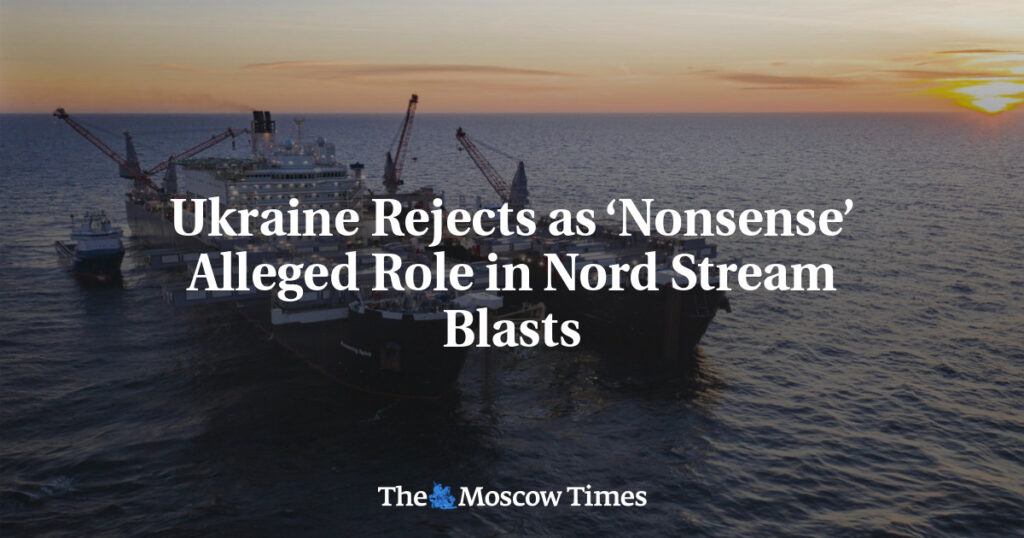Ukraine Dismisses Allegations of Involvement in 2022 Nord Stream Pipeline Sabotage
On Thursday, Ukraine firmly denied allegations implicating the nation in the sabotage of the Nord Stream pipelines in 2022, which transported Russian gas to Europe through the Baltic Sea. These denials came in response to a report from the Wall Street Journal claiming that Ukraine’s then-military commander, Valery Zaluzhny, had orchestrated the plan to blow up the pipelines in September of that year.
The Controversial Report
The Wall Street Journal’s report, published late Wednesday, suggested that senior Ukrainian military officers, along with businessmen, conceived the idea to sabotage the Nord Stream pipelines during a meeting in May 2022. This was just a few months after Russia’s invasion of Ukraine in February 2022. According to the report, six individuals executed the operation, which cost around $300,000 and was privately funded. They allegedly rented a yacht, sailed to the area of the pipelines, and dived underwater to plant explosives.
The report also indicated that Ukrainian President Volodymyr Zelensky initially approved the plan but called it off after the CIA intervened. Despite Zelensky’s orders, Zaluzhny reportedly went ahead with the operation, citing the inability to recall the sabotage team once dispatched, likening it to a "torpedo" that cannot be stopped once launched.
Strong Denials from Ukrainian Officials
Responding to these claims, Ukrainian presidential aide Mykhailo Podolyak told AFP, "Ukraine’s involvement in the Nord Stream explosions is absolute nonsense. There was no practical sense in such actions for Ukraine." He elaborated that the destruction of the pipelines did not alter the course of the war, deter Russian aggression, or impact front-line dynamics. On the contrary, Podolyak suggested that the act had bolstered Russian propaganda efforts, implying that Russia had clearer motives to carry out the blasts.
The Nord Stream Explosions and Their Aftermath
The Nord Stream pipelines, comprising two parallel pipelines running from Russia to Germany under the Baltic Sea, have been critical components of Europe’s energy infrastructure. When large gas leaks were discovered in September 2022, seismic institutes recorded underwater explosions shortly beforehand, raising suspicions of sabotage.
Although the pipelines were not operational at the time due to geopolitical tensions and sanctions on Russia, they still contained gas which leaked into the atmosphere. The incident drew international attention and speculation over who was responsible for the sabotage. Both Ukraine and Russia have consistently denied involvement.
Ongoing Investigations
The Wall Street Journal’s report dovetails with recent findings from German investigators, who have increasingly focused on Ukrainian involvement. German media reported that authorities had issued an arrest warrant for a Ukrainian national in connection with the sabotage.
Broader Implications
The potential involvement of Ukraine complicates the already tense relationships between Ukraine, Russia, and European nations. The Nord Stream incident underscores the multi-faceted nature of modern geopolitics, where energy infrastructure becomes a pawn in broader strategic conflicts.
For further details on the incident and ongoing investigations, you can visit Wall Street Journal for the full report.
Conclusion
As Ukraine categorically denies any involvement in the Nord Stream sabotage, the true perpetrators remain a subject of international scrutiny and speculation. The pipelines, symbolic of Europe’s energy links with Russia, have become yet another flashpoint in the complex geopolitical landscape shaped by Russia’s ongoing war in Ukraine.
